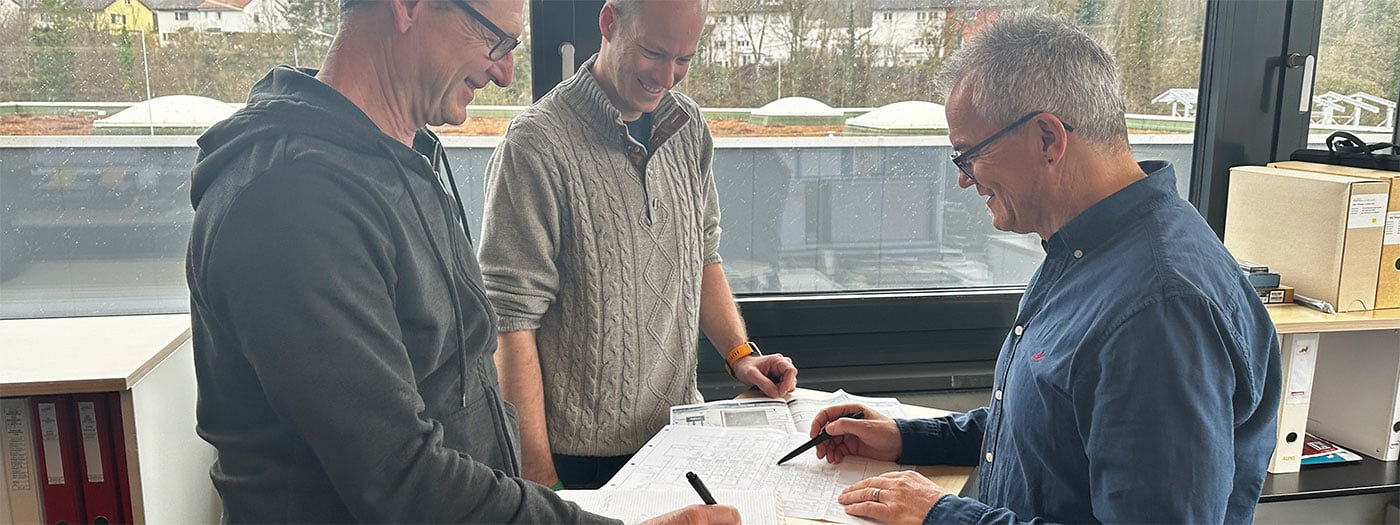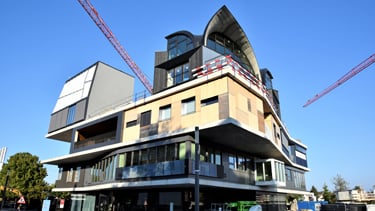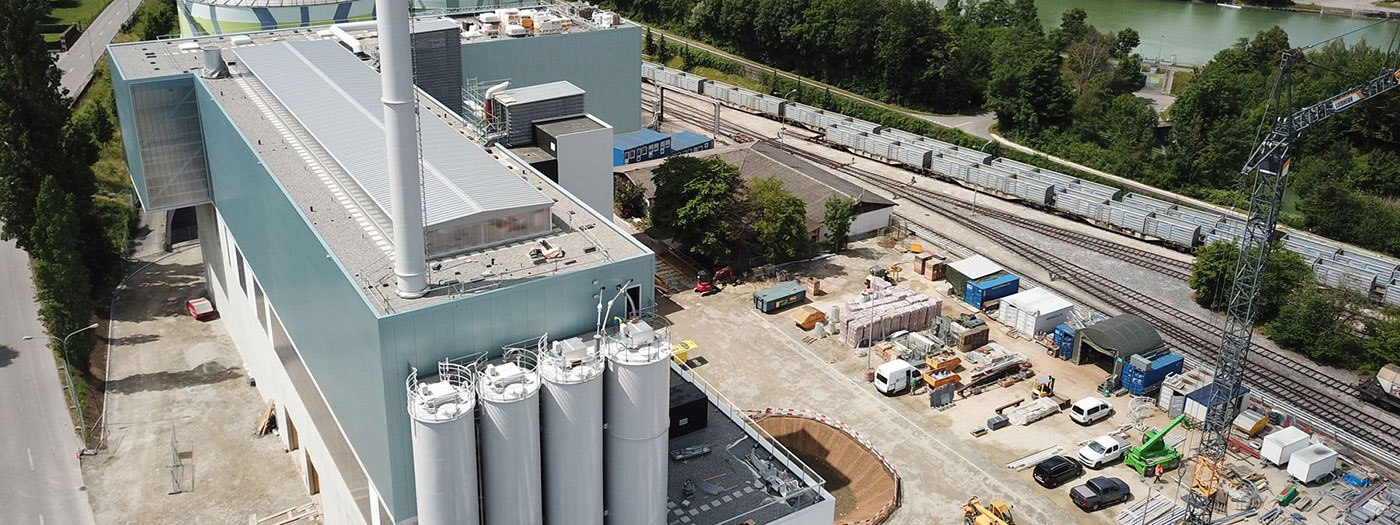How has your work at this company changed over time?
My work has changed in many different ways. The pressure from projects, meeting deadlines and financial aspects have become much more demanding. There’s never any end to the planning and it requires a lot of flexibility. Digitalisation has a major effect on the way we work. We used to work with a small panel or text displays, but these days everything is digital. Our customers have evolved, too, and now have a clear plan for digitalisation. They can exert much more influence and actively participate and collaborate in processes.
When starting out in your career, you decided to focus on software engineering. What role does software development play in the wastewater industry?
Automation is becoming more important all the time. In the past, a lot of data was collected without actually being used. Today, predictive data analysis (PDA) is hugely important. The collated data shows how processes can be optimised, with the aim of reducing the consumption of raw materials and energy, for instance, or improving process flows.
Are new technologies and trends shaping software development in your industry?
Over the last 37 years, technology has made significant advancements. Whereas previously we would have had a text display at the very most, today the requirements and possibilities are much greater, with entire networks of servers and clients involved. One key aspect is the networking of external plants, including monitoring and remote monitoring via apps using tablets and mobile phones.
Sustainability and environmental protection are more topical than ever. To what extent can software solutions help to improve environmental protection and sustainability in wastewater treatment?
Software solutions play a crucial role in this regard. The use of innovative software solutions allows wastewater systems to be operated more efficiently, resulting in a reduction in energy consumption and CO2 emissions. These solutions also make it possible to optimise the purification process and improve the quality of the treated water.
Software reliability is another key aspect of improving environmental protection. Using reliable software solutions prevents accidents, which, in turn, reduces the environmental impact and operating costs.
Modern software solutions also make it possible to collect and analyse data in real time, enabling more precise monitoring and control of wastewater treatment processes. This helps plant operators to react quickly to changes and ensures sustainable and environmentally friendly wastewater treatment.
Overall, software solutions make a significant contribution towards improving the efficiency, reliability and sustainability of wastewater treatment and thus greatly help to protect the environment.
Teamwork isn’t only essential within your team, but also in your dealings with your partners, customers and experts in the wastewater sector. Can you tell us more about this kind of collaboration?
Software engineers usually collaborate very closely with experts in the field of wastewater treatment. Process engineers and specialists working at the sites are indispensable partners when it comes to optimising and expanding wastewater treatment plants, as they have extensive, in-depth knowledge of the relevant procedures and processes. By thinking for themselves and acting proactively, they can respond to problems at an early stage and thus help to avoid disruptions. Their many years of experience also ensure effective communication and the development of bespoke solutions that are optimally tailored to the requirements of the respective plant. Overall, collaboration between software engineers and experts in the wastewater treatment sector is defined by a high level of expertise, teamwork and the common goal of continuously improving the efficiency and performance of the plants.
Thank you for your time and for such an informative interview. I have one final question for you: If you had to describe your work to someone from outside the sector in three words, what would they be?
Err… [laughs] Well, I’d say that it’s interesting, varied and that we’re helping to protect the environment.












